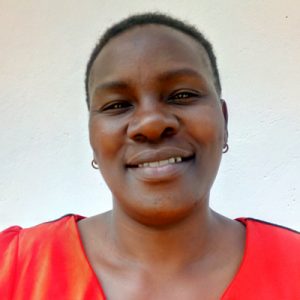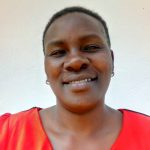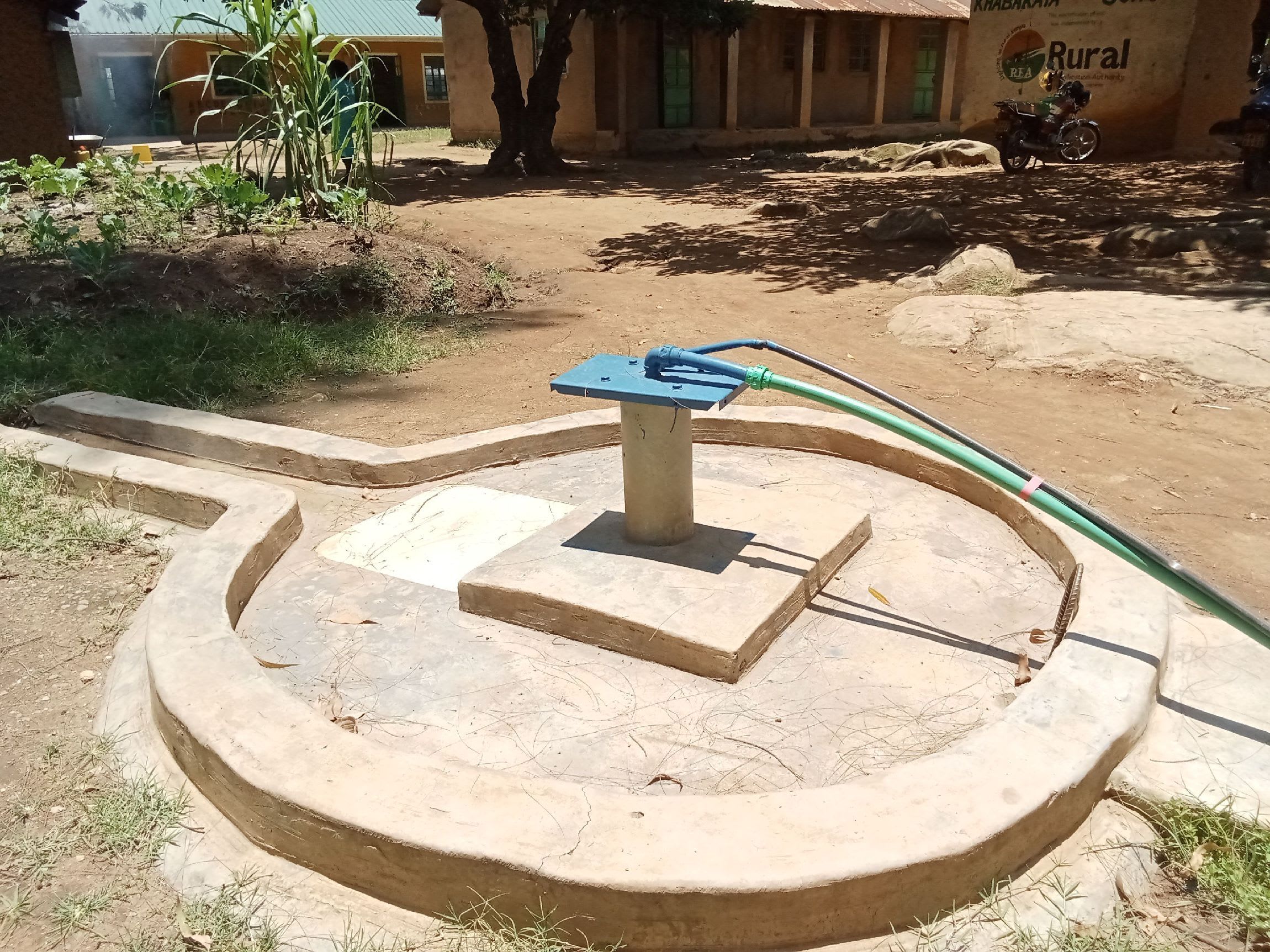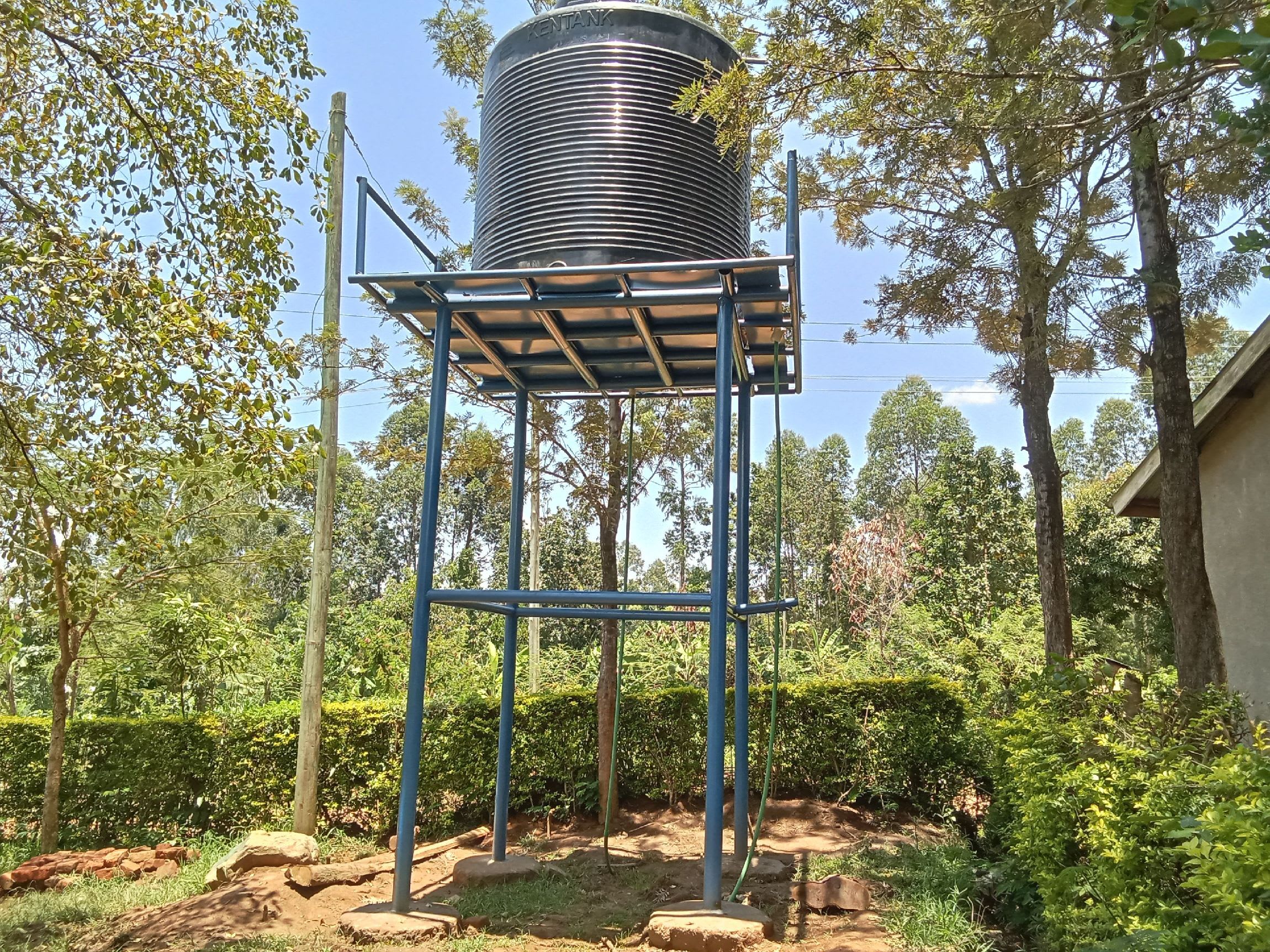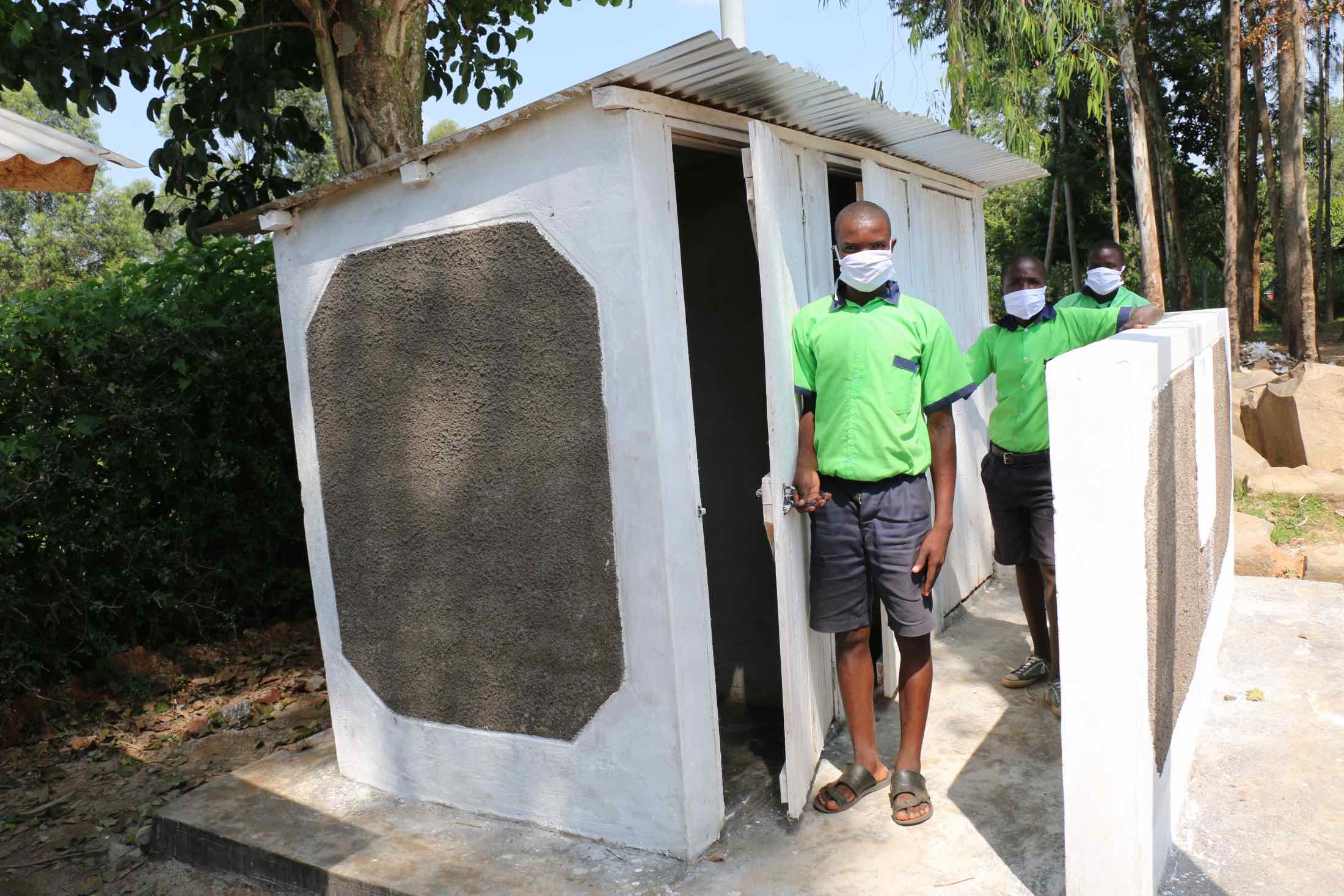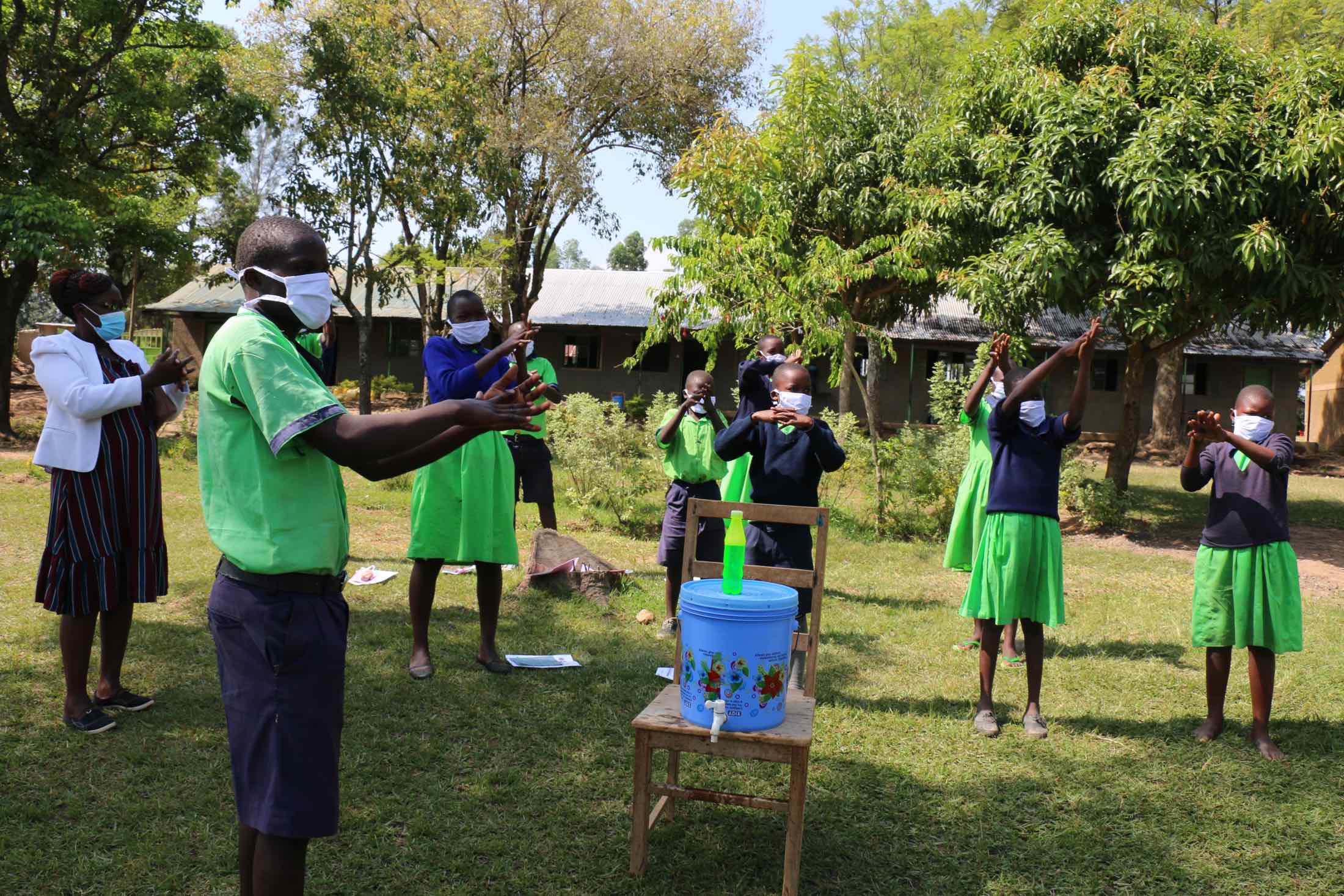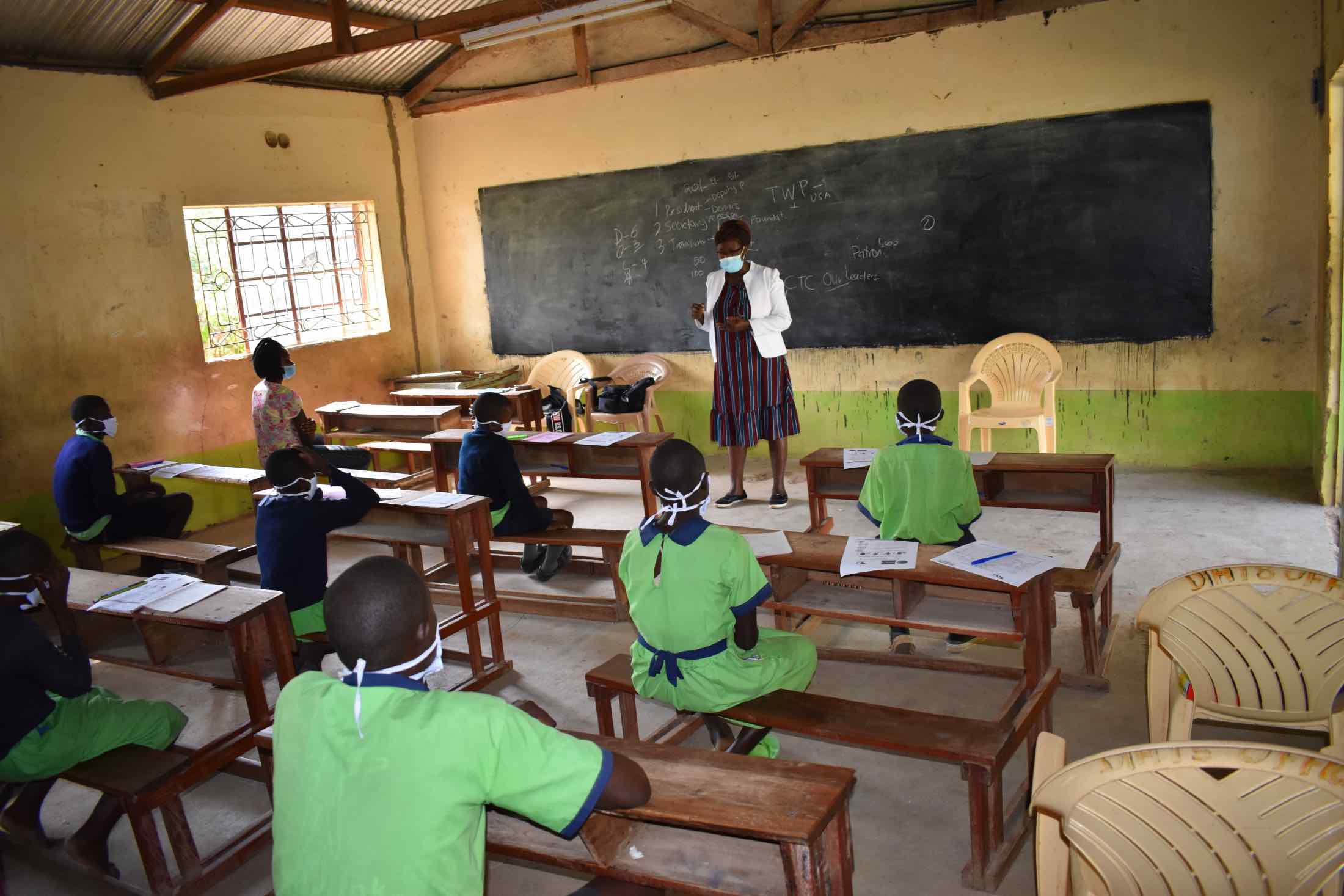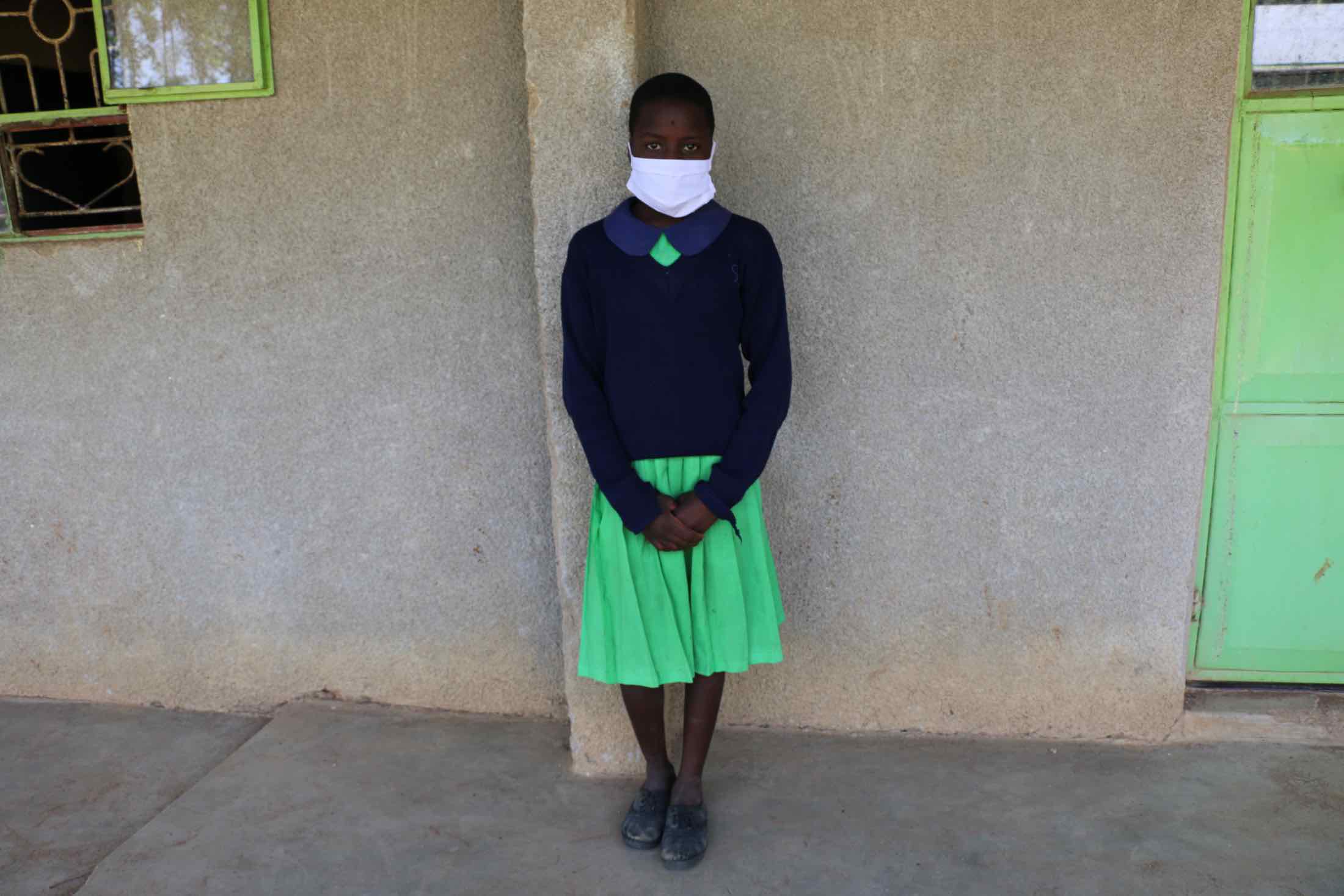St. Peter's Khabakaya Primary School is located near the town center, so the school hosts a particularly high population. There are currently 1,112 students enrolled, led by 26 teachers and staff. The community's farms surround the school, and it is next to St. Peter's ACK Church, which sponsors the school. The community here is a very religious group, with Christians and Muslims living together in peace. The people here come from different sub-tribes who all work and live together, lending a cosmopolitan feel to the area.
St. Peter's Khabakaya Primary School began in 1978 as a community school through the spirit of Harambee, a Kenyan tradition of community self-help groups pooling resources to use for a good cause. When it began, the school had just 15 students. Despite the large population growth each year, the school has never been able to supply enough clean water for its students. Today, there are just two small plastic rain tanks on campus that students access through several taps a few meters away from each tank. These tanks' small volume is minimal compared to the school's high daily needs for drinking, cooking, and cleaning.
To make up for the school's lack of water requires students to carry water from home every day. When the water runs out mid-day, students are sent out to find more water during breaks between classes, including during lunch. This places a heavy daily burden on the pupils, who often end up being late to classes on their return. Some students do not return for their afternoon classes after being sent out for more water. Those who do return find they are tired from all of the walking and cannot focus well, affecting their academic performance.
"I am late for class every time that I have to bring water. I also get tired from ferrying water to school," said student Mariam.
Conflicts are a major result of the school's lack of water. Community members get frustrated with students' presence at community water points throughout the day, adding to the lines and wait times at those sources. Parents become angry when their jerricans go missing at school, sometimes refusing their children a container for the day. But arriving at school without water results in punishment. No one is left unaffected in this daily scramble for water.
"I have conflicts with both parents and students. The parents are unhappy because I require students to come with water from home, making them hate school. And I have conflicts with students because if they don't bring water, I demand that they go home and do so," explained Headteacher Nelson Wanzetse.
Because teachers cannot monitor where students fetch water outside the school compound, their water sources' quality is unknown and untrusted. Even water in the small school tanks is not treated, and the tanks are not cleaned, heightening the risk of water-related illnesses among students. Students frequently complain of stomachaches after drinking the water at school.
What We Can Do:
New Well
We conducted a hydrogeological survey at this school, and the results indicated the water table beneath it is an ideal candidate for a borehole well. Due to a borehole well's unique ability to tap into a safe, year-round water column, it will be poised to serve all of the water needs for this school's large population, even through the dry months.
The school will help collect the needed construction materials such as sand, rocks, and water for mixing cement. They will also provide housing and meals for the work team, in addition to providing local laborers. We will complement their materials by providing an expert team of artisans and drilling professionals, tools, hardware, and the hand-pump. Once finished, the school’s students and staff will use water from the well and staff for drinking, handwashing, cooking, cleaning, and much more.
The school and we strongly believe that all of these components will work together to improve standards at this school, which will help lead to better student academic performance and unlock the opportunity for these students to live better, healthier lives.
Handwashing Stations
The student health club will oversee the two new handwashing stations we will provide and ensure they are kept clean and in working condition. The club leaders will fill the handwashing stations with water daily and make sure they are always supplied with a cleaning agent such as soap or ash.
VIP Latrines
Two triple-door latrine blocks will be constructed with local materials that the school will help gather. Three doors will serve the girls, and three doors will serve the boys. These new latrines will have cement floors designed to be easy to use and clean. And with a rain tank right on school property, there should be enough water to keep them clean.
Training on Health, Hygiene, COVID-19, and More
We will hold a one-day intensive training session with students, teachers, and parents. This training will cover a wide range of topics, including COVID-19 symptoms, transmission routes, prevention; personal and environmental hygiene; and the operation and maintenance of the rain tank, latrines, and handwashing stations. There will be a special emphasis on handwashing.
Our team of facilitators will use various methods to train, including participatory hygiene and sanitation transformation and asset-based community development. We will initiate a student health club, which will prepare students to lead other pupils into healthy habits at school and home. We will also lead lectures, group discussions and provide illustrative handouts to teach health topics and promote good hygiene practices within the school, including handwashing and water treatment. We will then conduct a series of follow-up training before transitioning to our regularly scheduled support visits throughout the year.

 Borehole Well and Hand Pump
Borehole Well and Hand Pump
 Rehabilitation Project
Rehabilitation Project










